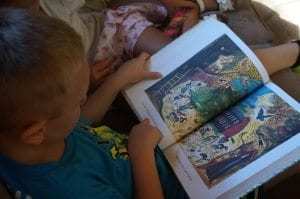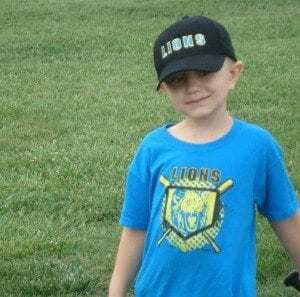By Brittany Zachary
This post is Part 2 of 3 of why we all need an ‘attitude adjustment’.
Post 1: Freak-outs and Question Marks–Getting Diagnosed With Autism and Parenting Strategies
Post 3: Your Child Needs to Experience Chiropractic Attitude Adjustments--Signs Your Child May Have Autism and Natural Treatments
I NEEDED A SELF ATTITUDE ADJUSTMENT AS A PARENT OF A KID WITH AUTISM
Last summer, my husband and I were at a loss of what else to do for our son. We had experienced many of the behaviors or symptoms of high-functioning Autism (or Aspberger’s), but no one had confirmed to us, “Your son is Autistic”. There are still many question marks I have about being a good parent to Tristan. My husband and I FIRST had to have a self attitude adjustment, because everything we were being told to do by various experts and sources were not going to help us. The phrase, “It takes a village” is true. Bits and pieces of advice from our tribe of healthcare professionals, family, friends, coaches, mentors etc. is what we needed. There is no singular answer as to what will help your child with symptoms of Autism-Spectrum-Disorder (ASD). Yet, I hope this post will help others by discussing when he was diagnosed and specific steps we took as parents to help with delayed skills and behaviors. (You can read part 1 of this blog series and learn more about behaviors associated with autism HERE. )
AUTISM DIAGNOSIS PROCESS
His behavior was beginning to get out of control during Summer 2013 before 1st grade. This was partially since he was physically growing in size, and it was getting more difficult to keep him from hurting us or his sister when he got angry. It wasn’t like he was angry all day long, but he started having LARGE outbursts (hours worth) every day to every other day. It was not a simple tantrum. It was a full-on FREAK-OUT MOMENT. (Please, envision large thought bubbles with giant question marks. This is often what my head is like around my son.) These fits often seemed unprovoked to us, and it was a very sudden reaction. It was and is still like a switch goes off in Tristan’s brain to negatively react if he internally interprets that something has gone, “wrong” or, “not according to plan”.
His poor coping behaviors included:
- Yelling—to the point his entire body was red and shaking
- Hitting
- Throwing objects
- Running away
- Kicking
- Clawing other people
- Pinching
- Choking
Tristan had always thrived during extremely structured ‘routine’ activities like church or school. His outbursts started appearing everywhere. We then contacted an office about behavioral therapy. After his evaluation, Tristan was diagnosed with high-functioning Autism or Aspberger Syndrome.
AUTISM BEHAVIORS AND STRATEGY
On my first post, I listed various behaviors that are associated with autistic children and how my son demonstrates those. Here is more information on how my husband and I approach some of those behaviors.
-
AGGRESSIVE BEHAVIOR STEPS
- From behavioral therapy, Tristan has learned a few ‘tricks’ to help with his anger. We use all of these steps and tricks to help reinforce positive choices. These include:
- State the 1st warning, why, and choices—You may not hit, because you could hurt another person and yourself. If you choose not to follow my directions, you are choosing to go to time-out.
- Tristan is then supposed to share, “I’m really frustrated…” or, “I’m really angry because…”
- Negotiate a compromise…or not depending on the situation
- Time out
- These are 1 minute for every year old
- Tristan’s time out spot is his bed or bean bag
- While in time out, he should look at a logo poster and say basketball team names out loud to calm himself down, scream into a pillow or his bean bag, or read a book
- From behavioral therapy, Tristan has learned a few ‘tricks’ to help with his anger. We use all of these steps and tricks to help reinforce positive choices. These include:
-
BEHAVIOR CONSEQUENCES
- If he ‘wronged’ someone outside of our immediate family he must write an apology letter and ‘I will not…’ on a piece of paper front and back for each action
- I hated writing letters apologizing what I did wrong. I still would prefer to state it out loud. There is something about physically putting pen to paper and writing, “I am sorry, because I messed up. I will try to…please forgive me.” With Tristan’s delayed fine-motor skills, this is sincerely a punishment for him.
- Take away items or activities that coincide with situation
- For example, let’s say Tristan is upset about his sister starting to win at Candyland and decides he is going to call her names or move gingerbread men around so he can win. We warn him that if he chooses to continue that behavior, he may not play the game anymore.
- If he ‘wronged’ someone outside of our immediate family he must write an apology letter and ‘I will not…’ on a piece of paper front and back for each action
-
POSITIVE REINFORCEMENT
- Daily behavior rewards
- Tristan has a behavior chart with goals set with his therapist. If he has all stickers or no ‘Xs’ for the day, he receives a baseball card. He earns two cards If he is extra helpful.
- Weekly behavior rewards
- If no more than 5 ‘Xs’ are marked on the chart for the week, than Tristan has ‘won’ for the week. He then earns a food treat and can hang his favorite basketball team poster in his room above his bed. If he loses, no treat and dad hangs the Zachary family basketball poster above Tristan’s bed for the entire week.
- Weekly chore rewards
- Tristan earns $1.25 for completing his daily chores for the week
- Daily behavior rewards
- HIGHLY RIGID AND STRICT ROUTINE STEPS
If my son doesn’t follow a strict routine, he cannot cope with life. It’s true. That’s why holidays are not fun for us. We don’t stay at my in-laws New Year’s Party past 8:30PM because the very latest Tristan can get to bed is 9:00PM…and that’s pushing it. Tristan’s routine is very strict for good reason. It takes him about one week to fall back into his routine if it becomes off by very much.

Here’s Tristan’s basic schedule (Monday-Friday during the school year):
4:30AM-5:00AM—Wake-up
5:00AM-6:00AM—Read
6:00AM—Get-up from room
6:00AM-6:30AM—Play an educational game on the computer, practice typing, or play a sports related video game
6:30AM-7:00AM—Quiet activity
7:00AM-8:00AM—Wander in circles, pet the dog, eat breakfast, brush teeth, change clothes, and inquire about lunch box items
8:00AM—Start complaining about not wanting to go to school
8:10AM—Start talking about how much fun school will be today, because he remembered something that’s happening
8:15AM—Leave for school
8:30AM-3:45PM—School
3:45PM-5:30PM—Get home from school, unload back-pack, have snack, do homework, do ‘planned’ pre-tend sporting event, and then read library book or annoy his sister. Dad gets home at 5:30PM.
*During days off from school and weekends we have ‘Quiet Time’ in our rooms from 1:00PM-2:00PM
5:30PM-6:15PM—Dinner
6:15PM-7:15PM—Argue with his sister about who gets to play with Dad first. Then play.
7:15PM-8:00PM—Brush teeth, fill-out sticker chart, change into pajamas, pick a story, have story time, get water bottle and put next to bed, get tucked-in bed, turn off lights, have Dad or Mom sing 3-5 songs, turn on box fan, and then turn on snow globe before the door finally closes for a good night’s sleep!
INABILITY TO UNDERSTAND SOCIAL/EMOTIONAL ISSUES OR NON-LITERAL PHRASES
Any behavior associated with social interaction and communication, we took the following steps specifically for Tristan’s situation:
- Tongue clipped, because he was tongue-tied
- Speech Therapy
- Play therapy (approximately 4 years old)
- Behavioral Therapy (Began a few months before turning 7 years old)

OBSESSION WITH SPECIFIC, OFTEN UNUSUAL, TOPICS (SKILLED OR TALENTED)
Tristan loves sports. He has always refused to learn anything new unless it is related to sports. My husband convinced him to begin learning numbers, letters, (each about age 3) and writing about age 4 after convincing Tristan he wouldn’t be able to follow along with multiple sporting events on television unless he knew the alphabet and numerical system.
We try to relate every new skill he needs to sports…or reading. If anyone has creative suggestions on how we can convince him that learning to tie his shoes is important, please contact me. I mean it.
ATTITUDE ADJUSTMENT LESSON TWO AND CHIRO CARE
My second ‘attitude adjustment’ lesson is to remember and respect that kids who are on the Autism Spectrum need parents and caregivers to have more patience and self-discipline. It’s difficult for me to do both of those. But, if I don’t have the self-discipline to create a structured routine or follow rules for our family, how is my son supposed to have the structure he needs to cope with the variables of daily life? It takes great patience to work with all of Tristan’s caregivers to ensure everyone is on the same-page, but it’s worth it for the moments when I can see Tristan’s interactions with other people are improving.
During my next and final blog post about Tristan, I will discuss physical symptoms that kids with Autism (and Tristan) sometimes experience. He has had multiple ear infections, constipation and bowel training issues, chronic illness, and allergies. I will share how chiropractic care has affected these physical issues and his behavior. Click HERE to read the final post about Tristan.

